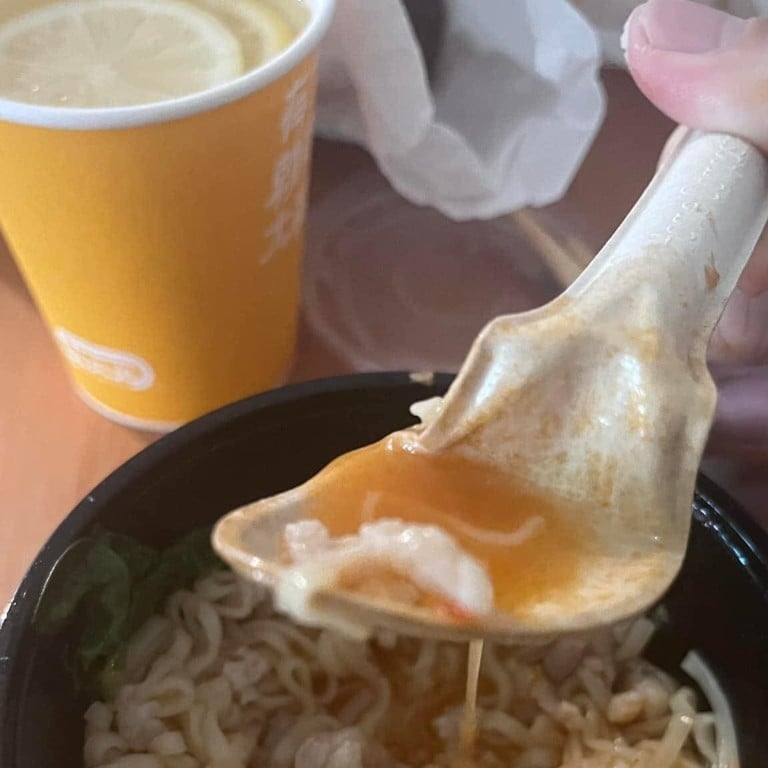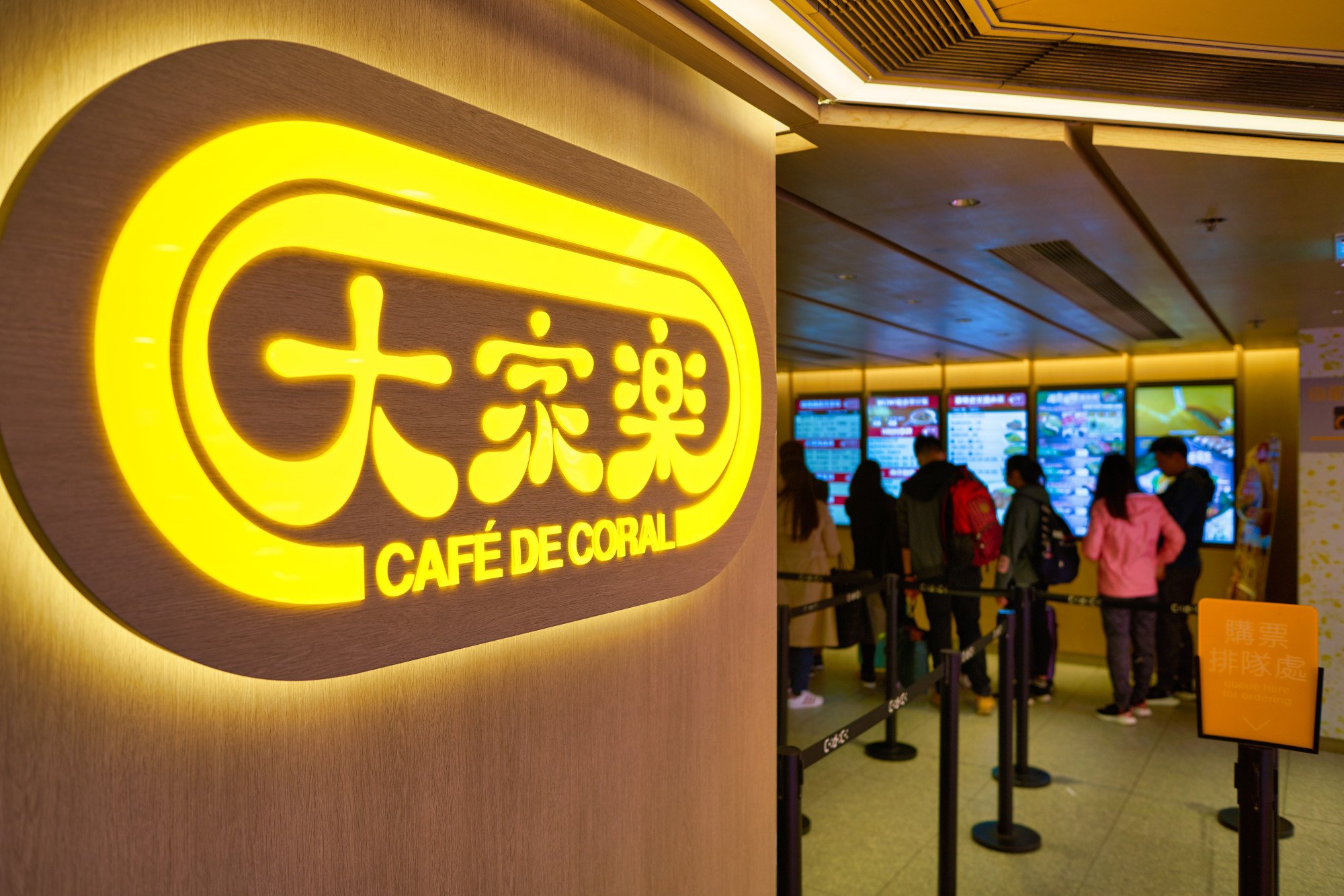
Soggy eco-friendly spoon from Hong Kong fast-food chain goes viral online ahead of single-use plastics ban
- Social media images show spoon from fast-food chain Cafe de Coral becoming deformed after patron gets halfway through bowl of noodle soup
- Post reporter puts spoons to the test and finds utensils’ rate of warping depends on the dishes, with expert pointing to possible differences in moisture exposure
A food safety expert said makers of eco-friendly cutlery should introduce a heat tolerance labelling system to reassure caterers of the products’ quality.
“This kind of cutlery is basically not qualified if it will deform once exposed to heat,” said Vicki Fong Lai-ying, an associate professor of food science at the Technological and Higher Education Institute of Hong Kong.
Concerns about the quality of some eco-friendly utensils were sparked by a post to a Facebook group on Thursday showing an out-of-shape spoon from Cafe de Coral.
The images showed a customer trying to eat a bowl of noodle soup with the spoon, labelled “home compostable”.
The utensil appeared to bend from the neck down as the diner got halfway through the bowl and soon afterwards reached a point where it became useless.
Sam Leung, who published the Facebook post, wrote: “And this is called a reinforced paper spoon?”
Environmental authorities will introduce a throwaway plastic ban on April 22, which will cover styrofoam products and utensils such as cutlery and straws offered in takeaway services.
Dine-in customers will also no longer be able to use single-use plastic cups or boxes under the policy.
The launch date for the second phase, which will cover single-use plastic cups and boxes for takeaway services, has yet to be announced.
Authorities earlier said the ban did not target individual users, but businesses, including restaurants and hotels.

Thursday’s pictures attracted more than 1,400 reactions and nearly 200 comments by Friday evening, including some users who questioned whether the spoon’s fragility had been exaggerated or if it had been left in the soup for too long.
“How long have you left it here? The noodles have also soaked up the soup,” one wrote in the comment section.
Another user said: “It seems you have to bring your own tableware when you eat out from now on.”
Cafe de Coral did not respond to the Post’s request for comment.
A Post reporter tested the utensils’ durability on Friday by putting them in bowls of congee, soup cavatappi and soup silver pin noodles, also known as bi tai bak or loh see fun in Singapore and Malaysia, from the fast-food chain.
Another was placed in a glass of room-temperature distilled water as a control test.
Is Hong Kong ready for ban on throwaway plastics starting next month?
All four spoons started to soften after an hour. The two in the soup cavatappi and silver pin noodles stayed slightly firmer than those in the water and congee.
The spoons placed in the water and congee became completely unusable after four hours. The two other utensils retained some degree of functionality.
Fong said she believed distilled water and congee could have dampened the spoons faster because they had more direct contact with the liquid.
“In noodle soup, we can’t rule out that the noodle could have blocked a little of the direct contact between the moisture and the spoon,” she said.
The academic said the utensils, typically made from cellulose or starch, used various chemical additives as binding agents to keep their form, which meant temperature tolerances varied.
‘Hong Kong restaurants ready for disposable plastics ban, but worried over cost’
“If its temperature resistance is above 75 degrees Celsius [167 degrees Fahrenheit], it will be safe when the food is at a low temperature,” she said.
“But if it starts to soften at 40 or 50 degrees, the material used in making the utensil will be able to get loose. What will be released depends on what was added during production, such as curing agents or adhesives.”
Fong advised manufacturers to label products with the temperatures they could tolerate to help reassure the public about their safety.
“I don’t think we need to worry too much,” she said. “Since we have to replace this plastic tableware anyway, can we optimise the level of the entire industry?
“I think having the labels can make everyone feel at ease.”
Lam Ching-choi, the chairman of the Council for Carbon Neutrality and Sustainable Development, said he believed the quality of substitute products would improve and they would drop in price.
Lam, also a member of the Executive Council, the government’s key decision-making body, added there was a six-month grace period to allow businesses to use up plastic items, and with alternative products, he was confident the public could adapt to the ban.
He said it was reasonable for restaurants to charge extra for utensils for takeaways, which could encourage people to use their own.
Additional reporting by Sammy Heung
